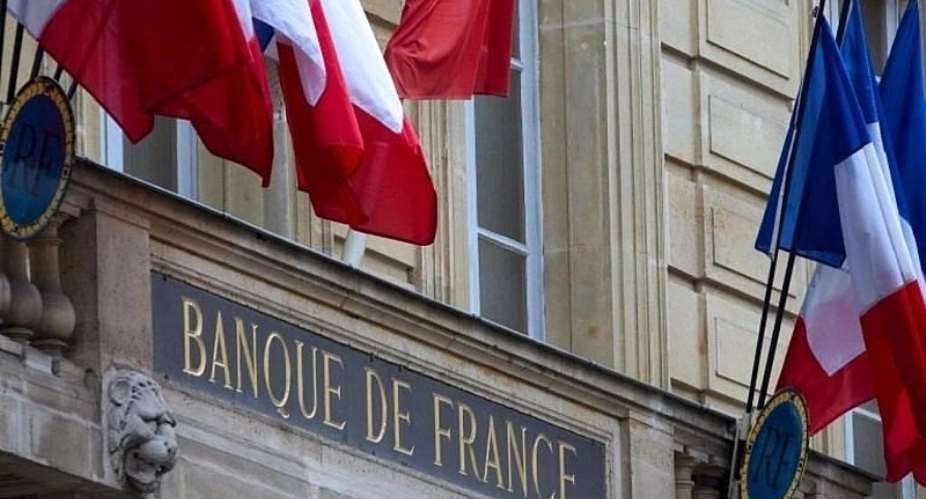France saw its sharpest economic contraction since World War II in the first quarter due to stringent lockdown measures in place since mid-March. With shops and businesses closed, and the future uncertain, consumers have been putting aside more money – to the tune of 20 billion euros in a month.
According to the national statistics institute, INSEE, gross domestic product shrank 5.8 percent in the quarter of 2020 from the previous three months, for the second time in a row, after shrinking 0.1 percent in the fourth quarter of 2019.
This means France is officially in recession.
The first quarter contraction was the biggest on a quarterly basis since 1949, surpassing the previous record of -5.3 percent in the second quarter of 1968 when France was gripped by mass student protests and general strikes.
Even in 2009, a year after world economic crash, the first quarter only fell to -1,6 percent.
8 percent contraction in 2020
The slump due to the covid-19 crisis has exceeded most economists' expectations, which on average were for -3.5 percent.
The French government expects the economy will contract at least 8 percent this year and has rushed through a crisis package worth 110 billion euros – 4 percent of GDP - to help companies and workers.
INSEE has previously estimated economic activity is at about two-thirds of normal levels and more than one out of two private sector workers has been put on state-subsidised furloughs aimed at staving off permanent mass layoffs.
Consumer spending down
On top of that, household consumer spending is down since lockdown came into force on 17 March.
INSEE said consumer spending, dropped 6.1 percent in the first quarter from the previous three months while business investment plunged 11.4 percent.
Consumers spent -17,9 percent less on manufactured goods in March, and only food purchases saw an increase (+7,8 percent).
The lockdown is due to begin winding down from 11 May, but the government has warned that bankruptcies and unemployment are likely to spike upwards in its wake.
However, during this time of crisis, households have managed to save money.
Saving for a rainy day
France's central bank (Banque de France) noted that French consumers put away 19,6 billion euros in March – three times as much as an average month (around 6 million euros), this because spending was lower due to confinement and shop closures.
The BDF also reported that due to a fear of handling cash during the crisis (for sanitary reasons), people fell back on cards and thus the deposits of notes and coins reached a record 2 billion euros in March, compared to 0,4 in February.
Other observation; the number of loans decreased sharply, mainly due to the fact that real estate transactions have been stagnant during confinement.
France's finance ministry said it was worried about this trend towards saving, saying only renewed investment would boost the economy.
Prime Minister Edouard Philippe is to meet today with trade unions and bosses to plan a strategy for lifting lockdown for businesses.





 Lay KPMG audit report on SML-GRA contract before Parliament – Isaac Adongo tells...
Lay KPMG audit report on SML-GRA contract before Parliament – Isaac Adongo tells...
 Supervisor remanded for stabbing businessman with broken bottle and screwdriver
Supervisor remanded for stabbing businessman with broken bottle and screwdriver
 NDC watching EC and NPP closely on Returning Officer recruitment — Omane Boamah
NDC watching EC and NPP closely on Returning Officer recruitment — Omane Boamah
 Your decision to contest for president again is pathetic – Annoh-Dompreh blasts ...
Your decision to contest for president again is pathetic – Annoh-Dompreh blasts ...
 Election 2024: Security agencies ready to keep peace and secure the country — IG...
Election 2024: Security agencies ready to keep peace and secure the country — IG...
 People no longer place value in public basic schools; new uniforms, painting wil...
People no longer place value in public basic schools; new uniforms, painting wil...
 'Comedian' Paul Adom Otchere needs help – Sulemana Braimah
'Comedian' Paul Adom Otchere needs help – Sulemana Braimah
 Ejisu by-election: Only 33% of voters can be swayed by inducement — Global InfoA...
Ejisu by-election: Only 33% of voters can be swayed by inducement — Global InfoA...
 Minority will expose the beneficial owners of SML, recover funds paid to company...
Minority will expose the beneficial owners of SML, recover funds paid to company...
 Prof. Opoku-Agyemang has ‘decapitated’ the NPP’s strategies; don’t take them ser...
Prof. Opoku-Agyemang has ‘decapitated’ the NPP’s strategies; don’t take them ser...
